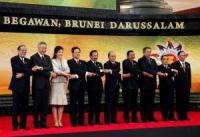DUMAGUETE CITY — The Department of Trade and Industry (DTI) plans to deploy its funds to help the Region VII tourism sector, focusing on shared service facilities (SSF) for small and medium enterprises (SME) involved in the growing travel industry and related retail businesses.
MANILA, Philippines – BPI Family Savings Bank, the consumer lending arm of Ayala-led Bank of the Philippine Islands, has maintained its leadership position in the thrift bank industry in 2013, with total loans amounting to P147 billion. In its annual report, BPI Family said the loans level last year was 16 percent higher than a year ago. Its home loan portfolio grew19 percent, while homeland releases expanded 17 percent. In the first half of this year, strategic partnership with real estate organizations were forged, which made possible, among other things, linking to each other’s website to help complete the process of home acquisition. Potential homebuyers can, through a partner real estate firm’s website, use a home mortgage calculator powered by the bank. Last year, BPI Family Auto Loan’s Online Auto Financing System embedded in the websites of partner car manufacturers and dealers served to more conveniently assist potential car buyers choose the best and most suitable car financing package. Business ( Article MRec ), pagematch: 1, sectionmatch: 1 The system now offers a complete car-buying process, with its First-Car Plan offering special deals and discounted rates on starter models from partner-car makers. BPI Family’s loans for business format franchising also registered growth in 2013. Partnerships in the Ka-Negosyo Program have resulted in an eight percent increase in small and medium enterprise (SME) loan volume. In line with its Ka-Negosyo Franchising Program, the bank introduced the Ka-Negosyo Franchise Finder, an interactive directory of franchise businesses that visitors could search for updated Read More …

BRUNEI DARUSSALAM – President Benigno S. Aquino III links arms with his counterparts in Association of Southeast Asian Nations (ASEAN) for the traditional group photo during the 22nd ASEAN Summit Retreat at the Prime Minister’s Office in Bandar Seri Begawan, Brunei on Thursday (April 25). In the photo are Singapore Prime Minister Lee Hsien Loong, Kingdom of Thailand Prime Minister Yingluck Shinawatra, Socialist Republic of Vietnam Prime Minister Nguyen Tan Dung, 22nd ASEAN Summit Chairman Brunei Darussalam Sultan Haji Hassanal Bolkiah, Kingdom of Cambodia Prime Minister Samdech Akka Moha Sena Padei Techno Hun Sen, Indonesia President Susilo Bambang Yudhoyono, Lao People’s Democratic Republic Prime Minister Thongsing Thammavong, Malaysia Prime Minister Dato’ Sri Mohd Najib bin Tun Abdul Razak, Malaysia Senate President Tan Sri Abu Zahar Ujar, Republic of Myanmar President Thein Sein and Asean Secretary-General Surin Pitsuwan. (MNS photo) MANILA (Mabuhay) — Understanding what the upcoming Association of Southeast Asian Nations (ASEAN) integration is all about is the key small and medium enterprises (SMEs) may use to compete in a larger, regional market, officials of the Chamber of Thrift Banks (CTB) said Wednesday. “The integration is definitely a good thing for consumers as it will bring about competition for industries therefore lowering prices,” CTB president Jose Teodoro Limcaoco told reporters in a briefing. “But for SMEs, it will be both an opportunity and challenge. That’s why we need to understand what the integration is about,” he said. Limcaoco said SMEs need to define what their role is in order to Read More …
MANILA, Philippines – Financing for overall development of small and medium enterprise (SME) were discussed recently by former Agrarian Reform Secretary Philip Ella Juico in a dialogue with the SME finance working group at a forum held at the Asian Development Bank (ADB). Juico, a former dean of the De La Salle University Graduate School of Business, shared his characterization of SME’s in the Association of Southeast Asian Nations (ASEAN) as a basis for the establishment of credit risks of SME’s to qualify under ADB-assisted development finance windows. Juico said the proposed characterization, could be used as a basis for risk mitigation financing policies of development banks. According to Juico, the SME sector in ASEAN is not monolithic and to regard it as such may be counter-productive due to the diverse characteristics of the sub-sectors where SMEs operate. Juico cited the case of the electronics and e-ICT subsectors in Malaysia and Singapore where both subsectors exhibited strong performance as original design manufacturer (ODM) and as electronics manufacturing Services (EMS) production platforms with substantial financial and R&D government support. Both subsectors in the two countries enjoyed strong performance in both the domestic and export markets. The same subsectors in the Philippines and Indonesia, however exhibited different characteristics with the electronics and e-ICT industries transitioning from a “mom-and-pop” to corporate operations mainly as subcontractors to domestic-based multinational companies. Juico pointed out that these subsectors in the two countries have been operating as original equipment manufacturer (OEM) production platforms at the lower end Read More …